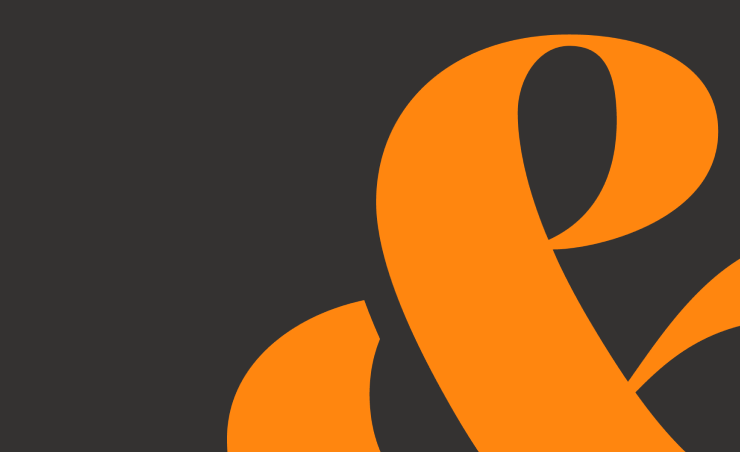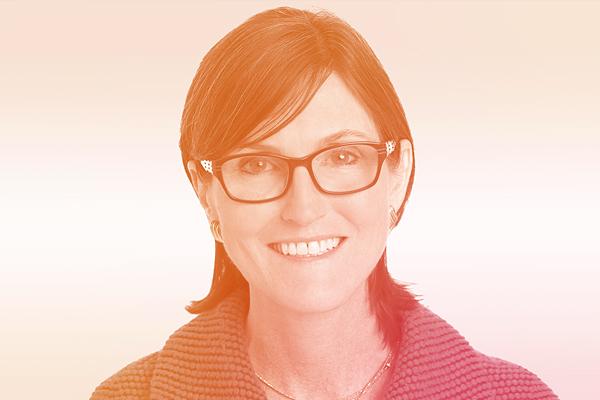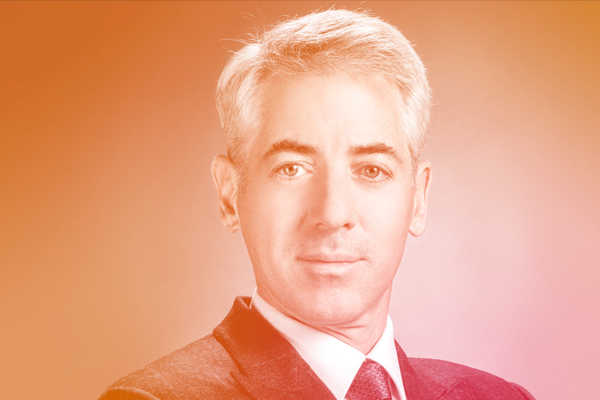
Star fund managers are betting that companies in e-commerce and healthcare that thrived during the COVID-19 pandemic remain solid long term bets as the virus permanently alters consumers behaviours and values.
At the Sohn Hearts & Minds charity conference, held virtually for the first time, fund managers tipped Australian online retailer Temple & Webster, German-listed grocer Hello Fresh, New Zealand-listed healthcare company Fisher & Paykel and telemedicine plays Ping Ang Health online and Teledoc to post further gains into 2021.
That is even as news of a vaccine triggered a rotation out of stay-at-home tech stocks and into beaten-up sectors.
Todd Guyot, of one of Australia's top hedge funds, Regal Funds Management, said ASX-listed online retailer Temple & Webster had further to run after gaining 284 per cent this year.
The company is still growing even the economy reopened in July and August.
That, he says “demonstrates the impact of repeat customers, which is a direct correlation with the customer experience."
"If customers get what they want correctly and in a timely manner, they will more than likely come back,” he said.
The obvious question, he says, is what will happen when COVID-19 "ceases to be a major issue."
But he believes that in Temple & Webster’s case it can further expand its online market share.
Milford Portfolio Manager William Curtayne picked New Zealand local hero Fisher & Paykel Healthcare, which is up 60 per cent this year, for similar reasons.
The COVID-19 pandemic has exposed its products to doctors and hospitals around the world, he said.
Fisher & Paykel shares have gained this year due to the growing use of its humidifiers and its Optiflow product, a breathing apparatus that helps deliver more oxygen to patients than traditional support.
But he says the pandemic has "obliterated" the key challenge of educating doctors and getting hospitals to buy the company's equipment.
Curtayne says 60 per cent of the company’s sales come from its hospital division, which he believes will further grow.
While a vaccine may be on the horizon, Curtayne expects F&P sales to grow as Europe and North America confront second waves of the pandemic.
Nick Griffin of Australian based global growth fund Munro Partners tipped German-listed HelloFresh, the online grocer, to capitalise on the digital shift that COVID-19 triggered.
The company, he said, was already well positioned heading into the pandemic.
That is because they spent the best part of a decade building infrastructure to take a leading position in 14 markets.
“We’ve actually seen this movie before. It was done by Amazon,” said Griffin.
“Once you have the infrastructure you can offer a better service to clients. That allows repeat customers and allows them to recommend to other customers. So you get an acceleration in market share," he said.
"HelloFresh has effectively destroyed most of their competitors in the US.”
The pandemic has also put health-technology stocks in focus.
Virtual healthcare could be the next megatrend and two global fund managers picked companies that they believe stand to win.
Cathie Wood, of ARK Invest, whose 2019 Tesla tip was the top performer placed her 2020 chips on Teledoc. The company, she said would solve a pending shortage of physicians in the US at a time when demand was about to soar.
"The US could be short 100,000 physicians in the next 10 years that's on a base of 1 million and that's 10 per cent. On the primary care side, the number is 40,000 and that's almost a 20 per cent shortage relative to demand."
Prince Street's David Halpet picked up on the same theme, but tipped China's Ping An as a better way to invest in telemedicine.
Ping An offers a mobile platform for online consultations, hospital referrals and appointments, health management, and wellness interaction services within China.
“Coronavirus is a key inflection point for digital health globally and the change in the business plan makes an attractive entry point," he said.
I believe this is a stock that can grow five to ten times over the next five years.”
The pandemic has been kind to the tech giants, such as Amazon, which New York University professor Scott Galloway said was "invented in central casting for a pandemic."
But Gavin Baker of Atreides Management is betting that bricks and mortar stores will learn to compete with the e-commerce giants.
He picked discount retailer Target as his top investment on account of it's strong e-commerce sales growth and investment in information technology.
Another stay-at-home-stock that has been left behind in 2020 is workplace communications tool Slack.
The company is one of the most shorted US software stocks as traders bet it will struggle to compete with Google Workspace and Microsoft Teams. That's even as the temporary move by employers allowing staff to work from home seems to be a permanent trend.
But TDM's Hamish Corlett said Slack was a cheap undermonetised asset that could become a takeover target.
No fund manager has navigated the COVID-19 pandemic better than Bill Ackman.
His fund, Pershing Square, headed into the crisis owning companies that would get hit right between the eyes by the pandemic. That includes takeaway chains such as Starbucks, Chipotle, and Restaurant Brands International, and hotelier Hilton.
But Ackman retained most of his holdings and placed a derivatives hedge that netted billions of dollars of profits.
Ackman told the Australian media last month that companies such as Starbucks would survive while smaller coffee shops would struggle to stay open.
The pandemic he said played into the hands of large listed companies with deep pockets.
He says Hilton's franchise business model meant it did not have to wear the immense fixed costs associated with running a hotel.
"It's not a capital-intensive business, so they can make it through this," he said. "Meanwhile in the hotel business there are going to be a lot of people turning in their keys."
This article was originally posted on The Australian Financial Review here.
Licensed by Copyright Agency. You must not copy this work without permission.


In yet another fantastic episode with Equity Mates, first-time conference manager Qiao Ma chats with the guys about her incredible first investment, the investment philosophy of core manager Cooper Investors and the investment thesis behind her conference pitch, Shenzhou International.


NYU Stern School of Business Professor, serial entrepreneur and business podcaster Scott Galloway has blasted “sociopathic” big tech and the US government, while outlining the profound implications of COVID-19 for the US economy and its big players.


Australian investors will be very familiar with potential gains that can be created from innovations in the payment system, think Afterpay. In China, the mobile payments market is both enormous and advanced in technical terms, that’s where Yeahka Ltd operates — a top stock choice from Beeneet Kothari of New York-based Tekne Capital Management at the SOHN Hearts & Minds Investment Conference 2020.


Leading US fund manager Bill Ackman has predicted that 2021 will be a “very good” year for the US sharemarket, with a combination of low interest rates, fiscal stimulus and a new president who will not introduce radical policies.


The rise of telehealth and online medicine as a result of the COVID-19 pandemic has been behind the recommendation of New York based fund manager Cathie Wood, for US based telemedicine and virtual health care company Teladoc Health as her stock pick for the 2020 Australian Sohn Hearts & Minds Investment Conference.


When Bill Ackman realised coronavirus was about to run rife in the West he knew he had to do something fast to protect the $US10bn ($14bn) of assets managed by Pershing Square, much of it in restaurant brands that were vulnerable to the economic lockdowns he saw coming. Rather than sell stock, he opted to hedge via credit default swaps.


Halpert's “digital decolonisation” thesis is that entrepreneurs, companies, governments and consumers in developing markets are reclaiming their digital economies and ecosystems from multinationals, and developing indigenous solutions for local problems.


Billionaire investor Bill Ackman bemoaned his losing bet on Warren Buffett’s Berkshire Hathaway during a virtual appearance at the Sohn Hearts & Minds investment conference this week, according to the Australian Financial Review.


Bill Ackman predicts 2021 will be a rewarding year for the equity market and urged investors to "go long", but the Wall Street legend and Pershing Square founder worries that irrespective of Pfizer's vaccine breakthrough, the US faces a grim winter of coronavirus casualties.


Global stocks exposed to the technology boom, whose performance was partially fuelled by the coronavirus crisis, were the big winners from the calls made by top investment minds at the Sohn Hearts & Minds Investment Conference last year.


Leading US fund manager Bill Ackman has predicted that 2021 will be a “very good” year for the US sharemarket, with a combination of low interest rates, fiscal stimulus and a new president who will not introduce radical policies.


Online retail stocks have become the small cap investment story of 2020, according to Todd Guyot, a portfolio manager with Regal’s $320m Australian Small Companies Fund. “We have done well out of the whole online theme of late,” says Guyot, who will be tipping a stock at the fifth annual Sohn Hearts & Minds conference on Friday.


When Bill Ackman realised coronavirus was about to run rife in the West he knew he had to do something fast to protect the $US10bn ($14bn) of assets managed by Pershing Square, much of it in restaurant brands that were vulnerable to the economic lockdowns he saw coming. Rather than sell stock, he opted to hedge via credit default swaps.


Tekne Capital Management portfolio manager Beeneet Kothari says US technology stocks continue to look attractive given their strong earnings outlook and dominant positioning in what he sees as a multi-decade reshaping of economies and business fuelled by COVID-19.


The shock suspension of the Ant Group initial public offering, slated to be the biggest float in history, has left investors reeling, but it could be back up and running within weeks, according to Tribeca Investment Partners’ Jun Bei Liu.


US tech giants are on track: not just to soar through the pandemic, but to structurally lock in their competitive edge well beyond COVID-19. What is more, there will be a tsunami of reallocated capital across the economy, creating huge winners and losers that investors should get ahead of if they don’t want to miss out.


One of the fiercest critics of 'Big Tech', author and academic Scott Galloway, has admitted his bearish call on Afterpay was wrong and warned that America's internet giants are poised to consolidate power following the coronavirus pandemic.


Scott Galloway, outspoken academic and expert on big tech, says "Jedi mind tricks" and "consensual hallucination" are responsible for some huge market valuations, and warns Silicon Valley giants will entrench their dominance in the post-pandemic world.


It has gone down in Wall Street folklore as one of the greatest trades in history – a $US27 million ($37.8 million) bet during the market meltdown in March that returned $US2.6 billion in the space of three weeks. And the mastermind behind it, New York hedge fund titan Bill Ackman, is now bracing for another bout of turbulence.


Wall Street legend Bill Ackman says megacap stocks such as Starbucks will come out of COVID-19 with a bigger moat and a market dominance like never before, and no election outcome will make a difference to the plight of wrecked small businesses.


A little under a year ago, Cathie Wood named Tesla as her top stock pick for 2020. Speaking at the Sohn Hearts & Minds Investment Leaders Conference in Sydney last November, Ms Wood, who runs US technology-focused investment firm Ark Invest, said her bearish case was that the stock price would double by 2024. It hit that milestone less than three months later.


Rory Lucas may have one of the best jobs in finance. As the chief investment officer of Hearts & Minds Investments (HM1), it's his duty to oversee the $780 million portfolio of the best ideas from some of the world's top investors.


Legendary Wall Street investor Bill Ackman will headline the 2020 Sohn Hearts & Minds investment leaders conference this year in a major coup for the event that has raised more than $20 million dollars for medical research since its inception in 2016.